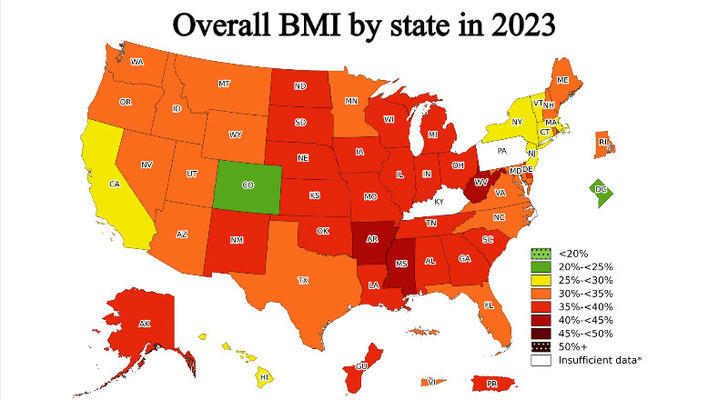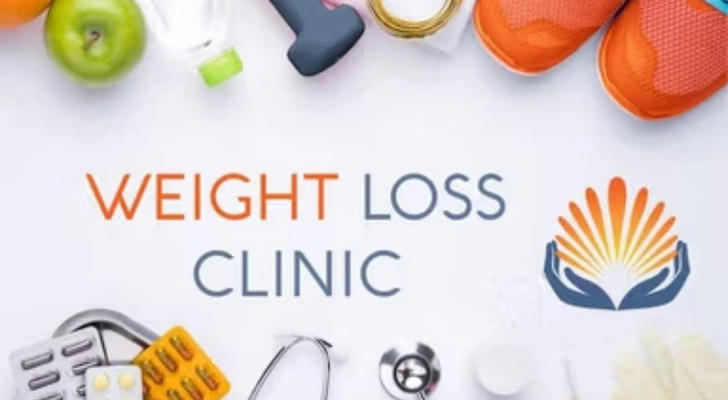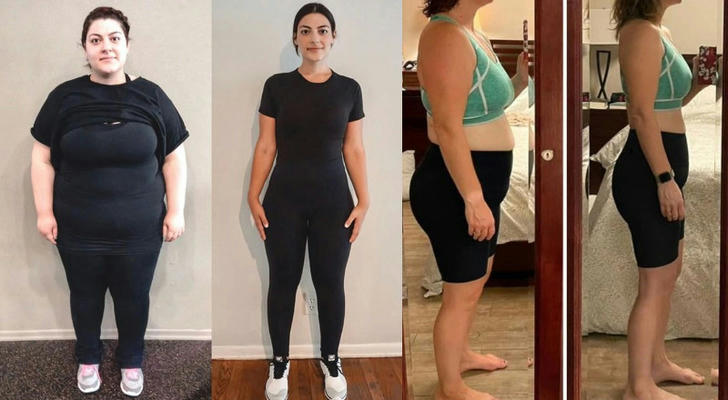The 2025 Guide to Weight Loss Clinics: Finding the Right Program for You
If you've tried every diet and fitness app without lasting success, you're not alone. According to 2023 CDC data, 40.3% of U.S. adults now qualify as clinically obese. While diet apps and gym memberships work for some, many are turning to professional weight loss clinics for science-backed solutions. This guide breaks down everything you need to know about modern weight loss clinics—from how they work to what really delivers results.

Why Consider a Weight Loss Clinic in 2025?
1. Personalized Medical Supervision
Unlike generic plans, clinics use advanced tools like:
- Genetic testing (now 30% cheaper than in 2023)
- Continuous glucose monitors covered by 65% of insurance plans
- Body composition analysis using AI-powered 3D scanners
2. Access to Newest FDA-Approved Treatments
2025 brought exciting developments:
- Semaglutide 2.4mg (Wegovy 2.0): 18% more effective than original formula
- Tirzepatide (Mounjaro Pro): Targets both appetite and fat storage
3. Long-Term Success Rates
Clinic-supported patients maintain 3× more weight loss after 2 years compared to DIY approaches (Journal of Obesity, Feb 2025).
Types of Weight Loss Clinics (And Who They're Best For)
🏥 Medical-Driven Clinics
Best for: BMI 30+ or weight-related health issues (diabetes, sleep apnea)
What to expect:
- Prescription medications
- Nutritionist consultations
- Progress tracking through wearable tech
2025 Cost: $150-$400/month (70% covered by insurance if medically necessary)
🥗 Lifestyle-Focused Clinics
Best for: BMI 25-30 seeking sustainable habits
Top 2025 Programs:
- Noom Clinic+: Combines app tracking with biweekly RD meetings
- Mayo Clinic Diet Premium: DNA-based meal planning
- WW (Weight Watchers) Medical: GLP-1 medications + points system
🔪 Bariatric Surgery Centers
2025 Update: Laparoscopic sleeve gastrectomy now has 45% lower complication rates vs. 2020 data
Typical process:
- 3-month pre-op nutrition program
- 1-hour outpatient surgery
- 12-month post-op support
💻 Virtual Weight Loss Clinics
Popular options:
- Found Health: Ships medications + connects to providers via app
- CalibrateMD: Combines telehealth with prescription weight loss drugs
- Omada Health: Focuses on diabetes prevention through digital coaching

How to Choose Your Clinic: 5 Key Questions
"What's your 2-year success rate?"
Good answer: "63% of patients maintain ≥10% weight loss" (2025 industry average: 55%)"Do you accept my insurance?"
Pro tip: Blue Cross/UnitedHealthcare now cover virtual clinics in 42 states"How do you handle plateaus?"
Look for clinics offering metabolic testing and plan adjustments"What's included in the base cost?"
Watch for hidden fees—lab work often costs extra"Can I see sample meal/exercise plans?"
Avoid one-size-fits-all approaches
Costs & Insurance in 2025
Typical Price Ranges:
| Service Type | Out-of-Pocket Cost | Insurance Coverage |
|---|---|---|
| Medical Consultations | $100-$300 | 80% covered |
| Prescription Drugs | $900-$1300/month | Varies by plan |
| Bariatric Surgery | $15,000-$25,000 | 90% covered if BMI ≥40 |
Money-Saving Strategies:
- HSA/FSA: Now cover obesity drugs in 38 states
- Clinic Discounts: 15% off for 6-month prepayment (common in 2025)
What Really Works: 2025 Data Insights
Top-Performing Approaches
Combination Therapy
Drugs + behavior coaching = 22% more effective than either aloneCircadian Rhythm Diets
Time-restricted eating boosted weight loss by 37% in night shift workersMuscle Preservation
Clinics using DEXA scans to monitor lean mass saw 50% less weight regain
Treatments Losing Ground
- OTC Diet Pills: Usage dropped 60% since 2023 due to safety concerns
- Juice Cleanses: Only 8% of clinics still recommend them
- Generic Meal Plans: 92% of top clinics now use AI-customized nutrition
Success Stories: Real 2025 Patients
Case 1: Sarah, 29
- Starting weight: 235 lbs
- Program: Medical clinic (semaglutide + Mediterranean diet)
- 1-year result: 68 lbs lost
- Key insight: "Weekly accountability check-ins prevented backsliding"
Case 2: Maria, 35
- Starting weight: 310 lbs
- Program: Virtual clinic + GLP-1 medication
- 6-month result: 18% body weight reduction
- Key insight: "App-based tracking made it feel manageable"

Red Flags to Avoid
claims:Lose 30 lbs in 30 days!
Safe clinics aim for 1-2 lbs/weekNo licensed medical staff
Ensure MDs/RDs are on-site or available virtuallyPressure to buy supplements
Ethical clinics prioritize FDA-approved methodsMissing success data
Reputable centers share outcomes transparently
Getting Started: Your 2025 Action Plan
Check Insurance
Use your provider's online portal to search "obesity treatment"Book Consultations
Most clinics offer free 15-min phone screeningsPrepare Questions
Bring:- Recent blood work
- Medication list
- Weight loss history
Plan Finances
Ask about:- Payment plans
- Income-based discounts
- Tax deductions (available in 22 states)
Final Thoughts
Choosing a weight loss clinic is deeply personal—what works for your neighbor might not work for you. The key is finding a program that:
✅ Uses evidence-based methods
✅ Fits your lifestyle
✅ Provides ongoing support
Remember, sustainable weight loss isn't about perfection. As Dr. Linda Sharma (President, Obesity Medicine Association) says: "Consistent small wins add up to life-changing results."
Next Steps:
- Bookmark this guide
- Research 3 local/virtual clinics
- Take their online eligibility quizzes
Data source:
CDC 2023: Adult Obesity Prevalence Maps
